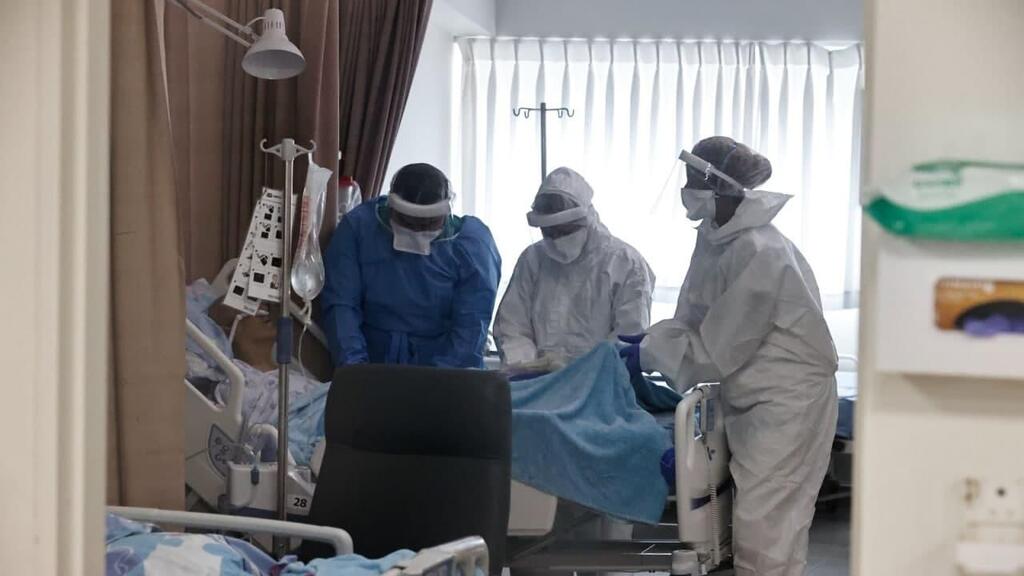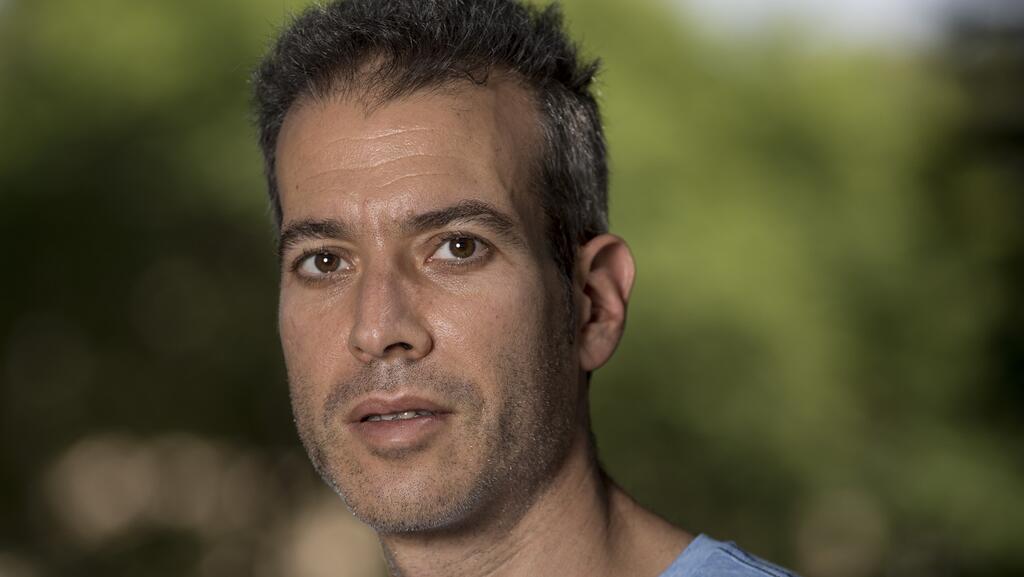A senior advisor to the government on the coronavirus pandemic said on Tuesday that he believes there will little to none COVID morbidity Israel by next month.
Prof. Eran Segal from the Weizmann Institute of Science, who has developed a coronavirus prediction model that is used by the coronavirus cabinet, told Ynet that although some Israelis may still become ill with the virus, their number will be much lower than recently observed.
2 View gallery


The coronavirus ward at the Barzilai Medical Center in Ashkelon at the beginning of the month
(Photo: Gadi Kabalo)
He added that the festival of Purim, celebrated this year on March 16, may be staged without any restrictions for the first time since the start of the pandemic.
"We've been experiencing a drop, in infections of some 20% in the past three weeks, followed by a reduction in serious illness which has seen a 30% drop," Segal said. "I expect that trend to continue along with fewer daily new cases of COVID-19. The graphs are showing a rapid decline," he said, adding that hospitals will also see fewer patients.
"We don't expect to see zero infections, but we know that many more people are now protected and that serious symptoms are rare. We saw this in other countries and unless there are unexpected surprises, we will have only a few thousands of infections confirmed daily," he said.
"There have been many deaths, we are still seeing more than thousands die daily. That is a heavy price to pay for keeping the economy open," he said.
"Israel is no different from other countries around the world. We are ranked 47th out of 130 countries with a population of more than three million. The question is whether a different government policy would have yielded different results," he said.
"I don't think we acted badly. The Omicron variant with an R factor of 2 means that in order to prevent infections, we would have had to limit 50% of all human interactions," he said.
He said that during Israel's second lockdown, the government limited only 30% to 40% of interactions and still did not manage to stop the pandemic, so a lockdown during the Omicron wave would not have been successful. "The public would also have not cooperated this time," he said.


